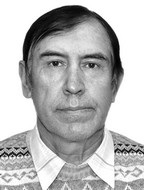Athletic functionality and adaptability rating studies: chronobiological approach
Фотографии:
ˑ:
Dr.Med., Associate Professor A.M. Durov1
1Tyumen State University, Tyumen
The study analyses benefits of a chronobiological approach in application to the athletic functionality and adaptability rating studies. It is a common knowledge that a success of the modern precompetitive training geared to attain the best form is largely determined by the individual athletic functionality and adaptability that may be rated using the relevant chronobiological toolkit. Adaptive responses to unexpected impacts are determined mostly by the individual adaptability amplitude: the higher is the amplitude, the wider is the range of options for adaptation, and the higher is the bodily functionality and more adequate are the responses. Therefore, the circadian rhythm amplitude with the relevant cardiovascular system functionality indices may be applied to rate athletic adaptability.
Keywords: cronobiology, functional range, athletes.
References
- Aghajanyan N.A., Gubin G.D., Gubin D.G. Khronoarkhitektonika bioritmov i sreda obitaniya [Chronoarchitectonics of biorhythms and habitat]. Tyumen, 1998, 168 p.
- Anisimov V.N. Epifiz, bioritmy i starenie organizma [Epiphysis, biorhythms and aging of the body]. Uspekhi fiziol. nauk, 2008, vol. 39, no. 4, pp. 40-65.
- Breus T.K., Chibisov S.M., Bayevskiy R.N., et al. Khronostruktura ritmov serdtsa i faktory vneshney sredy [Chronostructure of heart rhythms and environmental factors]. Moscow: RPFU publ., 2002, 232 p.
- Gubin D.G., Weinert D. Dinamika vremennoy organizatsii v protsesse stareniya. 1. Tsentralnye i perifericheskie mekhanizmy [Dynamics of temporal organization in the aging process. 1. Central and peripheral mechanisms]. Uspekhi gerontologii, 2015, vol. 28,, no. 2, pp. 257-268.
- Durov A.M. Biologicheskiy vozrast cheloveka (khronobiologicheskie aspekty) [Human biological age (chronobiological aspects)]. Tyumen, Vector Book publ., 1999, 200 p.
- Durov A.M., Prokopiev N.Y., Shatilovich L.N., et al. Preimuschestvo khronobiologicheskogo podkhoda v otsenke urovnya funktsionalnykh vozmozhnostey i biologicheskogo vozrasta cheloveka [Benefits of chronobiological approach in rating human biological age, functionality and adaptive capability]. Teoriya i praktika fizicheskoy kultury, 2016, no. 12, pp. 93-95.
- Zaripov A.A., Yanovich K.V., Potapov R.V., et al. Sovremennye predstavleniya o desinkhronoze [Modern ideas about desynchronosis]. Sovremennye problemy nauki i obrazovaniya [Modern problems of science and education]. Penza: Academy of Natural Sciences publ., 2015, no. 3, pp. 176-179.
- Komarov F.I., Rapoport S.I. Khronobiologiya i khronomeditsina [Chronobiology and chronomedicine]. Moscow: Triada-X, 2000, 488 p.
- Nazarenko M.A. Otsenka biologicheskogo vozrasta i adaptatsionnogo potentsiala u zhenschin s dnevnym i nochnym grafikom raboty [Assessment of biological age and adaptive potential in women with day and night working schedule]. Meditsinskaya nauka i obrazovanie Urala, 2017, no. 1, pp. 102-104.
- Romanov Y.A. Ot khronobiologii k khronotopobiologii [From chronobiology to chronotopobiology]. Vestnik Ros. AMN, 2000, no. 8, pp. 8-11.




 Журнал "THEORY AND PRACTICE
Журнал "THEORY AND PRACTICE